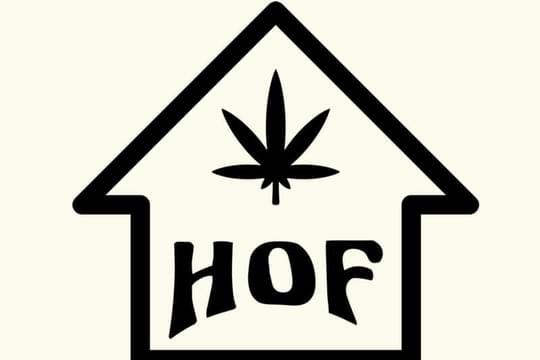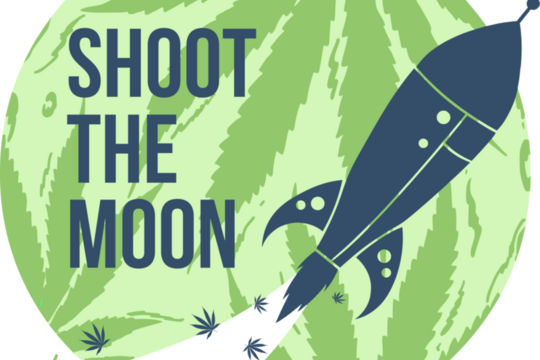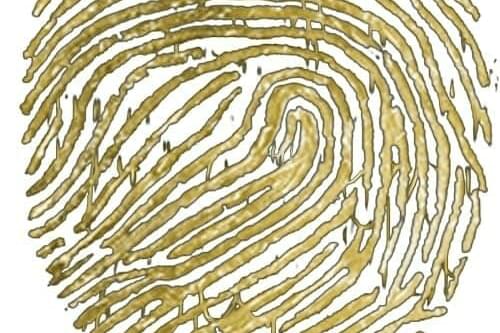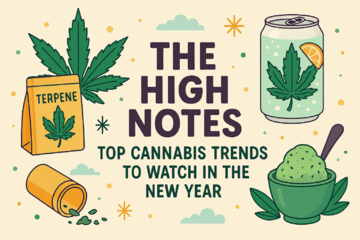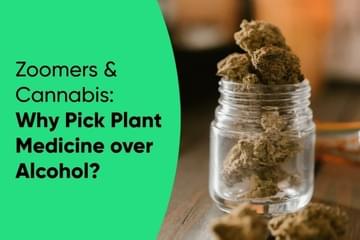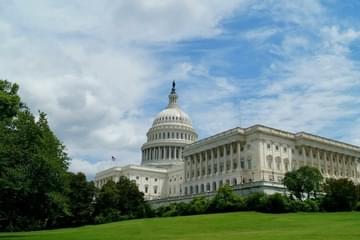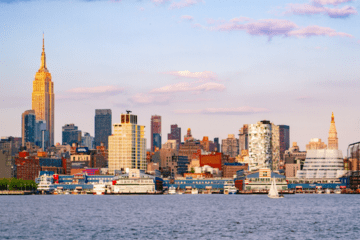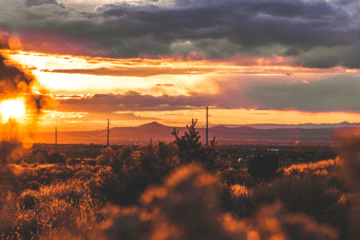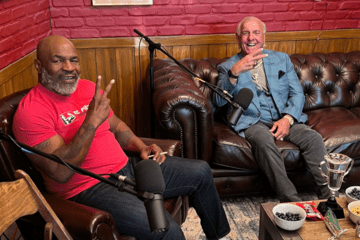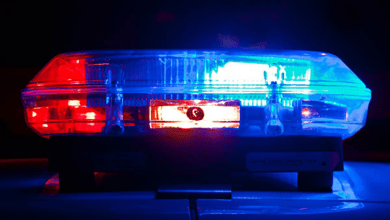
Why Are People Still Going To Jail Over Marijuana Possession?
Published on 6/25/20
Updated May 19, 2022
Despite continued state-level legalization of cannabis throughout the U.S., people are still being arrested and serving sentences for something as simple as just marijuana possession. Despite legal cannabis as a policy being overwhelmingly popular and more than 1/3 of American citizens having access to some type of legal weed, the U.S. continues to enforce its outdated and racist half-century-long drug war that has destroyed communities and helped to misconstrue popular opinion about marijuana and the people that use it.
The illegal status of weed is a concern for anyone in the cannabis community. Still, it's also the tip of an oppressive social iceberg that has long used drug possession to work against minorities and keep opinions slanted. After all, it's insane to consider that someone possessing cannabis on one side of a state border could be obeying the law, and just by crossing over that border with that cannabis, they are now subject to years in prison. It's a strange byproduct of our patchwork state-by-state approach to cannabis legalization.
In this article, we wanted to help educate on the racist backgrounds of the drug war and the pervasive racist policies that continue today, along with breaking down what we can do about these laws and policies and how to overturn and eventually replace them with more sensible, modern solutions that are more socially equitable. After all, we here at Where's Weed are all about spreading the knowledge and helping the legal cannabis community thrive in any way! So with all of that in mind, let's break down the impact of the War on Drugs on communities of color and how those policies still impact them today.
America's "War on Drugs"
 Flickr
FlickrFirst proclaimed by Nixon in June of 1971, the American drug war has raged for five decades, unjustly incarcerating millions. There have been dozens of large-scale drug busts throughout the past 49 years, but the most lasting impacts have been mainly counterproductive to the nation's health and state of social justice. In that same time frame, the Drug Policy Alliance estimates that the federal government spent at least $51 billion annually on these efforts, wasting taxpayer dollars that could have been put towards improving the lives of average American citizens and funding social programs. For some perspective, that's well more than $1 trillion in money down the drain.
It all officially began in the early 1970s, when American troops in Vietnam turned to heroin at alarming rates, and the civil rights movement was in full swing domestically. Nixon began the war by claiming drugs to be "public enemy No. 1" and creating the Office of Drug Abuse Law Enforcement (ODALE) to fight drug use at the street level. In 1973, he formed the Drug Enforcement Administration (DEA), consolidating agents from ODALE, the CIA, and the Bureau of Narcotics and Dangerous Drugs (BNDD) to cement the government's attack against illegal drug use. As the 70s continued, the War on Drugs was repeatedly affirmed by the insistent presence of foreign threats like the Colombian Medellin Cartel. Such drug cartels (such as those headed by Escobar and Ochoa) would remain relevant well through the 90s. From the 1970s to 2020, the incarcerated population went from 300,000 to 2.2 million. Now, 1 out of 5 inmates is serving time for drug-related offenses.
While drugs such as cocaine, heroin, and crack have made headline news to reaffirm the drug war's relevance, the American streets have been systematically policed in the name of the War on Drugs. Arrests used to be primarily centered around cocaine and heroin, but since the 1990s, there have been more people in jail for marijuana than any other drug. Most possession of marijuana charges are against individuals with negligible amounts, and most accounts are brought against minorities. According to the ACLU, despite equal use rates, blacks are 3.6 times more likely to be arrested for marijuana possession. And this awful result for people of color wasn't just some unintended consequence of a poorly thought-out policy. Years later, Nixon administration officials would come right out and say it via the press.
John Ehrlichman, a top Nixon aide, said of the decision to spark the War on Drugs years later, "You want to know what this was all about. The Nixon campaign in 1968, and the Nixon White House after that, had two enemies: the antiwar left and black people. You understand what I'm saying. We knew we couldn't make it illegal to be against the war or black, but by getting the public to associate the hippies with marijuana and blacks with heroin. Then criminalizing both heavily, we could disrupt those communities. We could arrest their leaders, raid their homes, break up their meetings, and vilify them night after night on the evening news. Did we know we were lying about the drugs? Of course, we did."
The Drug Policy Alliance says it best: "Higher arrest and incarceration rates for these communities are not reflective of increased prevalence of drug use, but rather of law enforcement's focus on urban areas, lower-income communities, and communities of color."
The Three Strikes Law

However, this law-and-order, tough on drugs policy approach didn't leave the office with Nixon. It continued for decades afterward, even in seemingly progressive bastions all over the country. In 1994, California passed the "three strikes" law. Under this piece of legislation, if someone is found guilty of a felony and has at least two previous convictions, they are sentenced to life in prison. Officially, it was enacted to "keep murders, rapists, and child molesters behind bars, where they belong." However, it has put people away for non-violent crimes, such as drug possession. Twenty-eight states and the federal government have had various versions of three strikes since 2004.
A horrific example of this law's oppressive nature lies in the case of Fate Vincent Winslow; a 47-year-old homeless black man caught in a $20 marijuana deal. While the white dealer was never charged, Winslow was sentenced to life without parole because of two previous, non-violent "strikes." Fate Vincent Winslow remains behind bars, serving life in prison for marijuana.
Policies like this removed generations of young men of color from society and their families, a devastating decision that we're still seeing the ripples from to this very day. America has yet to make amends for people of color.
The Drug War Today
The blatant racism behind the War on Drugs and the enforcement responsible for repeated injustice has placed thousands of people (predominantly black men) behind bars. You read that right. In a nation where public support for legal cannabis is overwhelming, and more than 2/3 of all Americans can legally access some form of legal weed, people are still locked up for possession.

Despite increased legalization, the marijuana incarceration rate has remained unnecessarily high. In 2018, 608,775 charged with marijuana violations were arrested for possession only. Overall, there are roughly 23,000 people still in jail for marijuana possession as their sole offense; and as of 2020, over 45 percent of nationwide monthly violations are still drug-related.
In addition to the social injustices the War on Drugs has written, underlined, and implemented, its official objectives to decrease drug use and domestic and international terrorism have failed.
In the words of the Cato Institute, "Given the insights from economics and the available data, we find that the domestic War on Drugs has contributed to an increase in drug overdoses and fostered and sustained the creation of powerful drug cartels. Internationally, we find that prohibition not only fails in its own right but also actively undermines the goals of the Global War on Terror."
Despite the overwhelming evidence and clear trail of oppression and unjust amounts of marijuana offenders in prison, many people wonder why can you still go to jail for possession of weed? Unfortunately, there is no one answer. Even though only 8 percent of Americans believe it should be illegal, marijuana is still federally illegal and only recreationally legal in 11 states. However, there have been states willing to pardon individuals serving a jail sentence for weed retroactively. When Illinois legalized marijuana, the state provided over 11,000 pardons to non-violent cannabis convictions. Other states, such as Colorado, Maryland, New Hampshire, and Oregon, have made it easier to expunge cannabis convictions. However, it's still incredibly difficult for the majority of the population.
What To Do If You're Stopped In Possession of Marijuana
 Unsplash
UnsplashThere are many facets to the War on Drugs, most of which deserve considerable contemplation, attention, and action to change. However, the simple fact remains that people are still arrested for marijuana possession. Anyone using marijuana in any state is still technically breaking federal law, and travel with marijuana can still prove a risk. It's important to know what to do when dealing with police while possessing any form of cannabis. Unfortunately, people are going to jail for weed-related offenses all over the country.
Whether it's on your person or in your car, we suggest following a few tips. Please note that we are not advising you what to do - these are simply suggestions. Nor do we encourage breaking the law in the first place. Just consider this part of the article your free legal advice to stay out of trouble from your friends here at Where's Weed.
Know the State's Laws
Because marijuana laws differ by state, knowing them before traveling with weed is essential. For example, while possessing up to 8 ounces of usable cannabis flower is entirely legal in California, bringing that same amount with you over the border into Arizona is a double whammy of trouble. You have just broken federal law by bringing your legal California cannabis out of the state, but you're far exceeding Arizona's limit of only 2.5 ounces of usable cannabis flower.
Due to the annoying patchwork nature of the legal cannabis laws here in the U.S., this scenario lands people in jail all the time. It's easy to avoid as long as you're paying attention, know the laws, and take the time to store away your cannabis during car rides properly.
State Your Rights
The Fourth Amendment protects you from unreasonable searches and seizures. If you're stopped for unrelated reasons, cops do not have the right to search your person, possessions, or vehicle - they can only do this if they have "probable cause." If an officer is pressing you to do something or show you something, you can assert this right.
Some states have even gone as far as to protect their legal cannabis users from too much police attention. In Pennsylvania, for example, their state-level Supreme Court deemed that weed smell alone isn't enough to warrant a search if you're a medical cannabis patient. Knowing this and holding firm on your rights could be the difference between a fine and some serious time behind bars.
Be Cool
Keep your calm and remember that, unless caught using marijuana, officers probably do not have the right to search you. Be kind and answer their questions.
If you get caught with marijuana, know that each state has different associated fines and penalties. Some of the worst states to get caught in possession of marijuana include South Dakota, Indiana, and Louisiana. In these states, you may serve years in prison and pay thousands of dollars in fines. In most states, you can probably expect possession of marijuana misdemeanor and a fine anywhere from $100 to a few thousand dollars. However, if you want an answer to the question, "how long do you go to jail for weed," there is no simple answer - there are too many determining factors to this problem. The important thing is to try and remain on the right side of the law and to know your rights should you come in contact with the police.
This isn't an easy subject. The War on Drugs not only poses a risk to the cannabis community but also represents the systematic injustices of our current social and political systems. Where's Weed is, first and foremost, a community - we invite you to share your stories, experience, and opinions about this difficult (and necessary) topic. From all of us at Where's Weed, thank you for reading. Thank you for caring.



